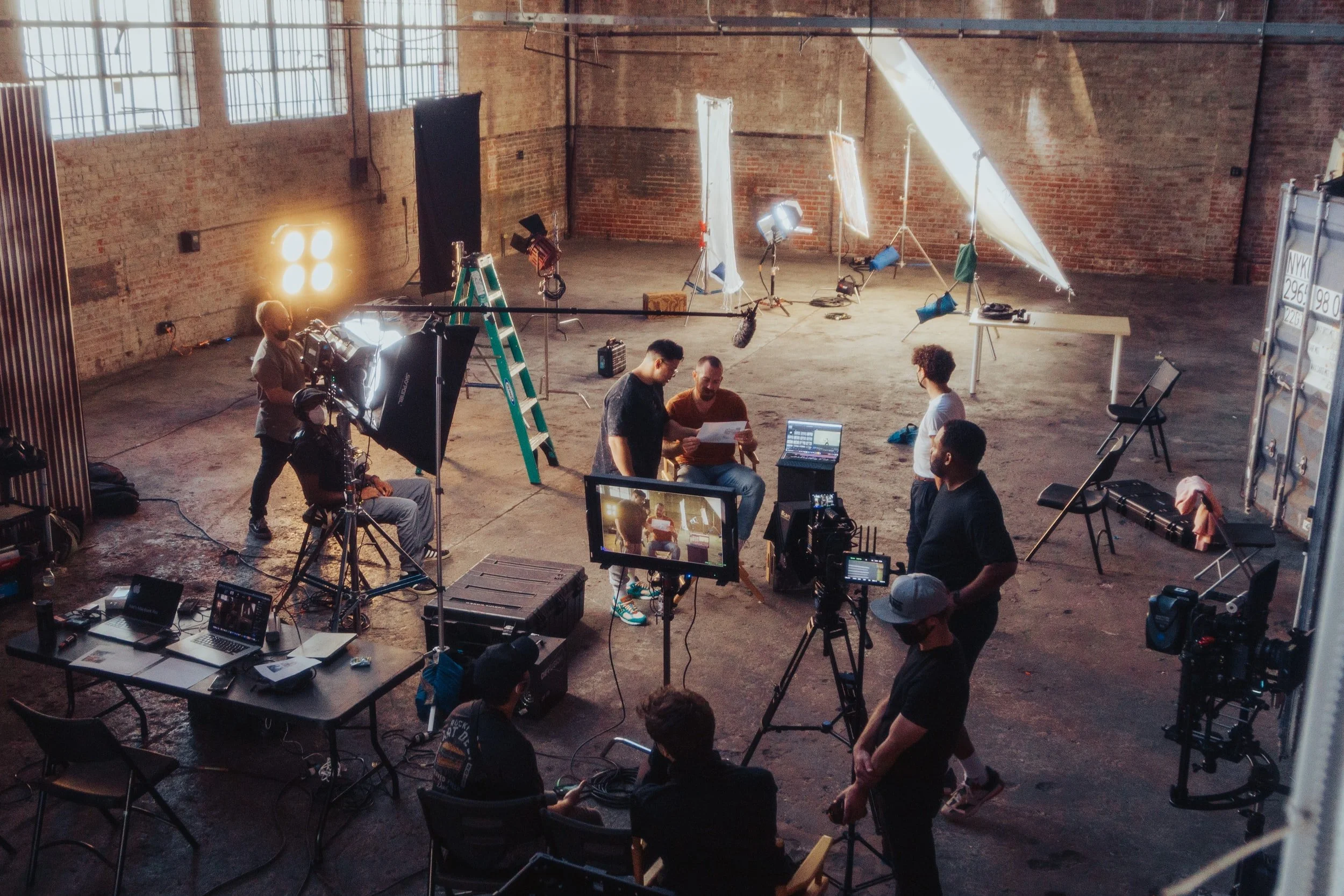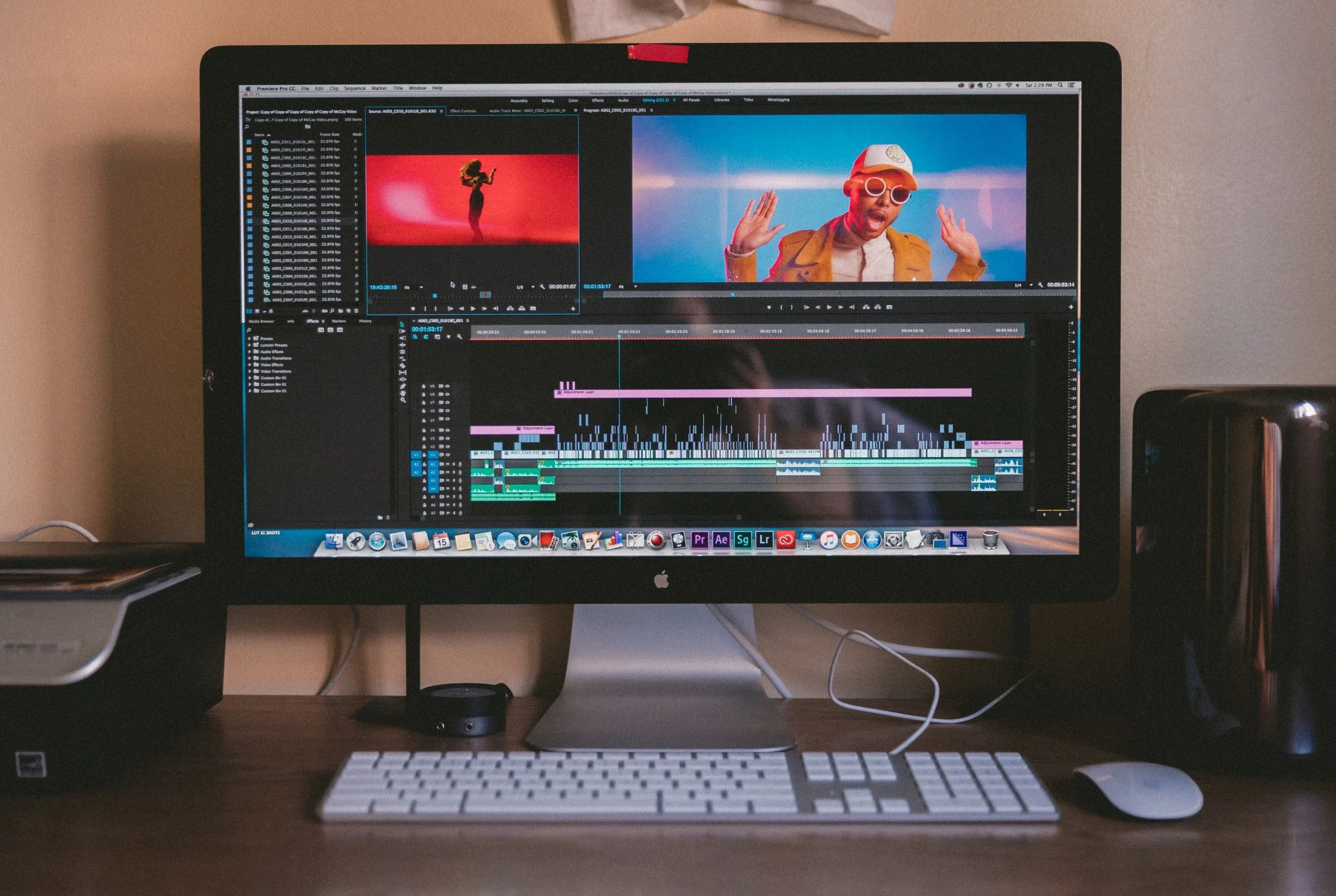Video Production Professional Needed
Image courtesy of @jakobowens1 via Unsplash
Maybe you’ve seen this video making the rounds online about how videos are made:
Despite the fact that video content is everywhere, I still find that some clients lack a full understanding of the entire video production process. I once sat in a meeting where a client green-lit a concept consisting of four long-form videos, requiring five-plus days of shooting, a variety of actors, multiple locations, and VFX work. Then he was disappointed to learn that he wouldn’t have the first video in-hand within the month.
If you need to hire a video production company, or a one-man Producer/Editor to work with you on your next video project, here’s a brief job description of what they must be able to do to complete the job:
Concept
In the conceptual stage of any project, this individual (or company) must speak with all the stakeholders to properly define the scope of each video and obtain buy-in. This will often require a pitch deck and creative brief. This requires strong communication skills, as they must ask the right questions to ensure that expectations and parameters are clearly defined, so that the final video will meet the client’s needs. They must understand the differences between documentary style filmmaking and narrative filmmaking; high concept vs. run-and-gun; corporate-style vs. story-driven, and much more.
Pre-Production
In this stage of this process, the individual (or production company) will write scripts and develop storyboards so that the client can visualize what the final video will look like. Once approved, they must develop a shooting schedule and secure locations, permits, collect headshots & resumes, hold auditions, and cast.
For non-narrative projects, the video production team will need to meet with interview subjects ahead of time, build rapport, obtain important background information relevant to the story, write interview questions, and conduct any necessary research that will inform the story and final edit.
Production
The process of actually gathering footage for a video requires a number of technical skills and knowledge of filmmaking theory. The video production team must have a thorough knowledge of varying camera systems and lenses. They must understand varying frame rates, camera resolutions, and aspect ratios, and know when it is beneficial to use one frame rate versus another and how that choice will affect the footage and final video.
They must demonstrate academic and technical knowledge on the craft of cinematography, knowing how to properly compose a shot and combine both talent and camera blocking to maintain high production value and to ensure that adequate coverage is gathered while on location so that there is enough raw footage available in the edit to properly tell the story.
They must understand the physics of lighting, how it works, and be able to set up various lighting plots (both on location and in-studio) that are appropriate for the mood and story. They must have a working knowledge of lighting control systems for studio work. They must understand the difference between high-key and low-key lighting, understand each light fixture available and when it’s appropriate to use one over another.
They must demonstrate a working knowledge of light ratios, ensuring proper contrast throughout a scene, and know what lighting is required when a scene calls for a hard, high-contrast look, or a soft, even look. They must understand color theory and the Kelvin scale of color temperature to ensure that the footage captured has the right color balance throughout.
They must also understand how to properly light, expose for, and shoot on green screen for post-production compositing.
The video production team must also know how to work with both professional and non-professional talent, including children. They must clearly communicate the purpose of each scene, the action required, and what each individual should be doing so that the scene feels authentic, natural, and genuine. Sometimes this must all be accomplished under specific time constraints. They must be able to make quick decisions on lighting, camera placement, and talent action.
For documentary projects, the video production team must know how to properly conduct an interview to illicit sincere responses from subjects in a conversational manner without leading them or telling them exactly what to say. He must keep the interview on topic, ensuring that relevant sound bites are gathered.
Post-Production
The individual (or production company) must have strong organizational skills and a thorough knowledge of non-linear editing systems. They must understand media management and have a solid post-production workflow to ensure maximum efficiency. They also need to understand the craft of editing, possessing invaluable knowledge about how to shape a story for maximum impact.
Proficiency in motion graphics and animation is a must.
The individual (or production company) must understand color theory and must be able to take the video through a color correction and grading process, ensuring that each shot looks color accurate, and that the grade serves the story’s mood and tone.
To enhance the world presented in each video, and to provide a level of authenticity and immediacy to the story, the video production team must understand how to use software like Adobe Audition or Pro Tools to create an immersive sound bed by using sound effects and foley work.
They must also have a basic understanding of music theory and music genres, knowing how to select the right stock music for a video (or direct a composer) to fit the emotional arcs throughout, and be able to re-time and splice those tracks into a cohesive score.
They must be able to work with outside vendors when necessary to select voice-over talent, and be able to direct each voice-over talent during recording sessions. They must be able to clearly communicate to the voice-over talent so that the final read has the right nuance to fit the emotion of the video.
They must demonstrate knowledge of varying video distribution platforms and the technical requirements of each, including aspect ratios. They must also be able to produce videos that meet unusual aspect ratio requirements, such as those needed for large scale museum displays or live events.
In addition to all of the above, this individual (or production team) must stay up to date on all advancements in the video production industry, from both a hardware and software perspective, and maintain an up-to-date understanding of various video marketing trends.
Producing a video often requires a lot more than one might think. If I can help you in any way on your next video project, be sure to reach out.





